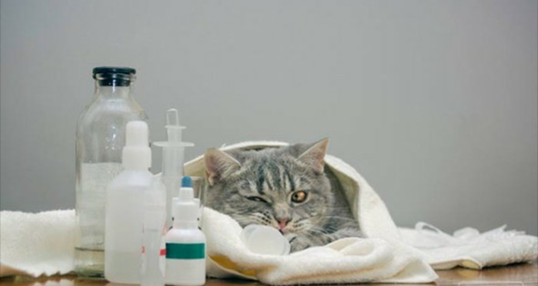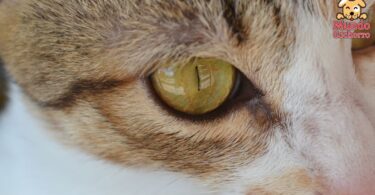 Cats are hardy animals with adaptive abilities that cannot be underestimated, however, feline skin is very sensitive and can be exposed to a number of diseases, infections or allergies if not properly cared for. Among the different pathologies that can affect the skin of cats, the most frequent are the following:
Cats are hardy animals with adaptive abilities that cannot be underestimated, however, feline skin is very sensitive and can be exposed to a number of diseases, infections or allergies if not properly cared for. Among the different pathologies that can affect the skin of cats, the most frequent are the following:
Indice
1. Feline dermatitis
Dermatitis in cats can be due to different reasons that are categorized, like other skin problems, into infectious or non-infectious diseases.
The most common infectious causes of dermatitis are internal and external parasites (ticks, mites), as well as bacterial or fungal infections. In the case of the non-infectious ones, the most common causes are allergies to certain foods, animals, substances in the environment or materials (plastic allergy for example), sun damage, contact with chemicals, wounds, stress, disorders such as hyperthyroidism, among others.
Because the causes of dermatitis are so varied, diagnosis and treatment require a series of tests by a veterinarian to rule out the exact cause. The most frequent dermatitis in cats are contact dermatitis, flea or food allergy dermatitis, and “tail” dermatitis.
2. Sunburn
Cats, especially those with light coats, albinism or sparse hair, are extremely prone to sunburn, which is one of the main causes of skin cancer in felines. The hours of special vulnerability are between 10 a.m. and 2 p.m., at this point it is not recommended to let the pet out, even if its coat is not light or has abundant hair.
Sunburns usually occur in different degrees depending on the type and time of exposure. The most severe sunburns can cause fever, dehydration or heat stroke in the animal.
3. Abscess
Skin abscesses in cats are usually caused mainly by fights with other cats or animals, especially when they have received a bite or deep wound. If the wound is not treated in time, it can lead to an abscess, which is characterized by a painful accumulation of pus in the deeper layers of the skin.
Abscesses and any wound in general, must be properly treated, since poor care of these can expose the feline to much greater problems because of bacteria that can enter or are in the affected area, sometimes reaching a tragic outcome for the life of the pet.
Image courtesy of (www.feelcats.com), all rights reserved.







